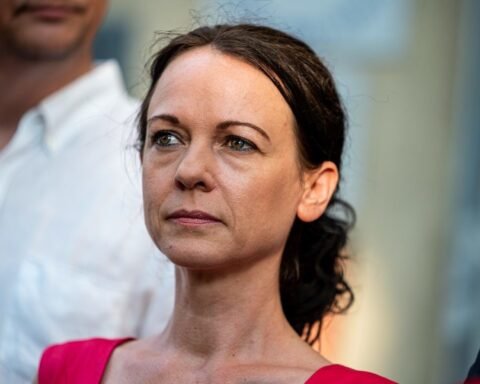While only Czech citizens over the age of 18 can vote, the parliamentary elections on Oct. 3-4 will determine the next government and prime minister. For the one million international residents in Prague, the outcome could influence daily lives including the cost of living and migration approaches.
The center of this election revolves around Czechia’s stance with Ukraine and the European Union. Eurosceptic opposition party ANO, led by billionaire and former prime minister Andrej Babiš, is leading approval ratings with 31% support, according to Politico.
Babiš has pledged to slow military aid to Ukraine and has aligned rhetorically with pro-Russia governments in Hungary and Slovakia. Prime minister Peter Fiala, leader of the ruling Civic Democratic Party, has labelled Babiš as “pro-Russian,”a claim Babiš denies.
“In many cases his opinions are, in the end, pro-Russian, but nevertheless he never was a pro-Russian politician,” said Viktor Daněk, deputy director of the think tank Europeum to Radio Prague International.
ANO also pledged greater social spending, lower taxes for individuals and businesses and a cap on energy prices.
Trailing ANO by 10 percentage points is Spolu, who has led the governing coalition since 2021 and strongly supported Ukraine with weapons and training, arguing that Czechia’s security depends on resisting Russian aggression.
However, only 30% of Czechs are satisfied with the current government’s program, according to a June 2025 survey by the CVVM polling institute. The study explains that the party ranks more favourably among men, the youth and those with higher education.
For foreigners in Prague, if ANO wins by majority and tightens immigration restrictions, the visa process may become stricter. Some non-EU students may face more paperwork in the future. Whereas Spolu is likely to maintain or relax visa policies particularly impacting students or where there are labour shortages.
“People with a migration background pay close attention to the tone of politics and how migration is discussed, because it affects how they are treated and how legal processes unfold,” said Ben Curtis, an American political analyst to Expats CZ.
Unlike in the United States, where voters choose individual candidates, Czechs cast their ballots for political parties. Then the 200 seats in the Chamber of Deputies are proportionally distributed.
The number of seats a party wins determines its bargaining power in negotiations and policy priorities. Parties must receive at least 5% of the vote to gain a chair which encourages smaller parties to form alliances.
For example, the far-right Freedom and Direct Democracy (SPD) party, who focuses on stricter migration and asylum policy, cooperated with the smaller parties Svoboda, Trikolóra, and Svobodní, to form a coalition.
Left leaning coalition Stačilo!, including Social Democrats and the Communist Party, who emphasize social welfare and healthcare, alongside the Pirates/Mayors coalition have less than 10 percentage points each.
After the vote, the president appoints a prime minister who is the leader of the party with the majority vote. If no single party wins by majority, which typically occurs, coalitions are formed. This leads to policy compromises between parties after entering the government.
“The elections will affect everyone, whether it be through housing or visas, even if you can’t vote,” said Johanna Holubova, a Czech third-year AAU student.











